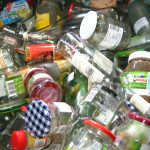ZAGREB, May 29, 2019 – Croatia has a bright energy future but should utilise its potential better and prepare well for the transition to cleaner fuels, a conference heard on Wednesday, as well as that gas boilers and internal combustion engine vehicles should no longer be used after 2030.
The conference was organised by the Lider weekly.
In its Energy Development Strategy, Croatia has opted for affirming domestic production from renewable sources, diversification of electricity and gas supply, higher production of all fuels and increasing storage, Environmental Protection and Energy Minister Tomislav Ćorić said, adding that Croatia wanted to reduce its energy dependence.
He said energy was a key sector for economic development but noted that Croatia’s energy potential was not being fully utilised. Croatia imports 40% of electricity, 60% of gas and 80% of oil and its products, he added.
Frane Barbarić, CEO of the HEP power utility, said the HEP Renewable Scenario Strategy until 2030 had four segments.
The first is the continuation of the development of hydroelectric power plants, which will remain HEP’s most important renewable source, with investments of 3.6 billion kuna by 2028, resulting in an additional 160 megawatts, he said. So far, a third of the planned funds has been invested in this segment.
The second is the construction of new hydroelectric power plants, notably small ones, the third the construction and takeover of wind farms, solar power farms and other plants using renewables, and the fourth the construction of high efficiency cogeneration plants, primarily at existing Zagreb and Osijek locations.
By 2030, we plan to get 1,500 MW of new energy from all those technologies, including half from solar power and wind farms, and we plan to invest HRK 750 million in solar power farms by the end of 2023, Barbaric said, adding that HEP also plans to install new electric car charging stations.
The realisation of the HEP Renewable Scenario Strategy will increase the share of renewables by 50% and production from renewables by six to nine billion kilowatt hours a year, he said.
More energy news can be found in the Business section.







